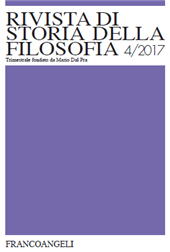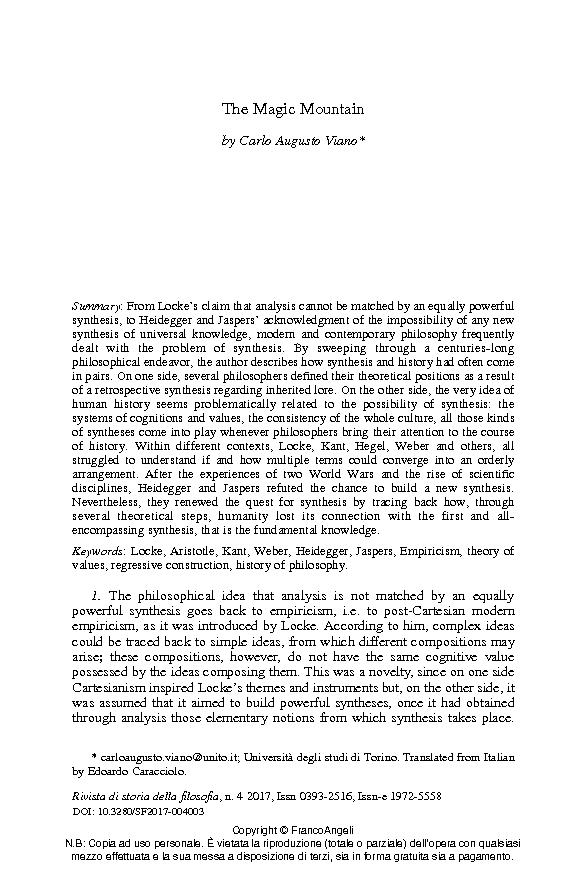The Magic Mountain
575-584 p.
From Locke's claim that analysis cannot be matched by an equally powerful synthesis, to Heidegger and Jaspers' acknowledgment of the impossibility of any new synthesis of universal knowledge, modern and contemporary philosophy frequently dealt with the problem of synthesis. By sweeping through a centuries-long philosophical endeavor, the author describes how synthesis and history had often come in pairs. On one side, several philosophers defined their theoretical positions as a result of a retrospective synthesis regarding inherited lore. On the other side, the very idea of human history seems problematically related to the possibility of synthesis: the systems of cognitions and values, the consistency of the whole culture, all those kinds of syntheses come into play whenever philosophers bring their attention to the course of history. Within different contexts, Locke, Kant, Hegel, Weber and others, all struggled to understand if and how multiple terms could converge into an orderly arrangement. After the exp
eriences of two World Wars and the rise of scientific disciplines, Heidegger and Jaspers refuted the chance to build a new synthesis. Nevertheless, they renewed the quest for synthesis by tracing back how, through several theoretical steps, humanity lost its connection with the first and all-encompassing synthesis, that is the fundamental knowledge. [Publishers' text].
Ist Teil von
Rivista di storia della filosofia : LXXII, 4, 2017-
Artikel aus derselben Ausgabe (einzeln erhältlich)
-
Informationen
ISSN: 1972-5558
THEMENBEREICHE



